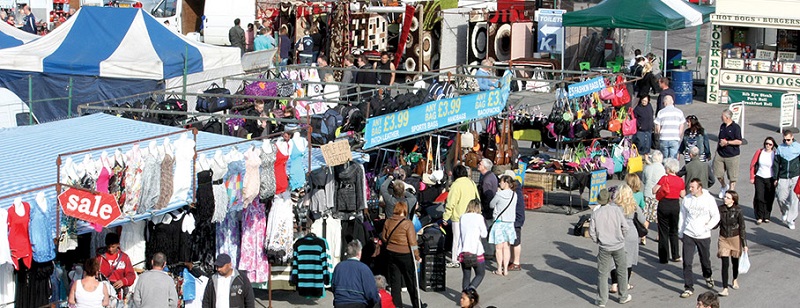
by Fortress & Castle Ltd | May 12, 2015 | News
Picasso’s Women of Algiers has become the most expensive painting to sell at auction, going for $179.3m (£115m) at Christie’s in New York.
Eleven minutes of prolonged bidding from telephone buyers preceded the final sale – for much more than its pre-sale estimate of $140m. The evening sale also featured Alberto Giacometti’s life-size sculpture Pointing Man, which set a record as the most expensive sculpture, at $141.3m. The buyers chose to remain anonymous.
The Picasso oil painting is a vibrant, cubist depiction of nude courtesans, and is part of a 15-work series the Spanish artist created in 1954-55 designated with the letters A to O. The final price of $179,365,000 includes Christie’s commission of just over 12%.
The previous world record for a painting sold at auction was $142.4m, for British painter Francis Bacon’s Three Studies of Lucian Freud. That sold at Christie’s in 2013.
Experts believe the investment value of art is behind the high prices. “I don’t really see an end to it, unless interest rates drop sharply, which I don’t see happening in the near future,” said Manhattan dealer Richard Feigen.
Source: BBC
Why not make the transition from hard copy to electronic storage of documents? It’s easier than you think, click on the link…
https://www.youtube.com/watch?v=oBjh5Y9-zAA

by Fortress & Castle Ltd | May 12, 2015 | Article
Large enterprises. Mid-sized businesses. It seems like they’re all vulnerable to data security breaches today. It’s no longer as easy as locking up the front door of the business. Just ask Slack, Target and even Salesforce, each of which dealt with cyber attacks on some level in the past few years. Businesses don’t have to be entirely vulnerable, though. In this discussion point, CMS Wire asked several security industry officials to weigh in on the sources of breaches at large enterprises.
The Question: Why do large enterprises have security breaches?
PJ Kirner, CTO and founder, Illumio says:
“Large enterprise data breaches fall into a clear pattern. At a high level, attacks that lead to data breaches follow a sequence — the initial attack, followed by propagation to other vulnerable systems in the network, collection of sensitive data from compromised systems and finally exfiltration of information.
Over time, attacks have become more sophisticated and targeted with many variations in the modus operandi of the initial attack, from opportunistic attempts driven by security errors to malicious insiders, organised crime rings and hacktivists. But the processes by which the attack takes hold and the attacker makes away with sensitive data still remain largely the same.
Enterprises have focused a lot of attention on efforts to stave off this initial attack. They have spent billions of dollars bolstering perimeter defences in the hope that the attack can be prevented from even arriving at the door step. However, recent events and high profile breaches have highlighted the problem of this one-dimensional approach to security which allows attackers to exploit the weak insides of data centers or clouds after they sneak past the perimeter.
Enterprise data centers and even public clouds suffer from a problem of gratuitous connectivity — or the ability for servers to communicate simply because a network path exists. This is the single biggest vector by which attacks spread laterally from one compromised system to the other. The lack of visibility and control over the traffic between servers behind the perimeter means that attackers have very little resistance once they’re inside.
Security solutions must address the issue of unintended connectivity by decoupling the enforcement of security from the network. They must dynamically secure the communications between server with granular and automated controls to restrict interactions based on application needs. With the right application segmentation and isolation, enterprises will have a better chance at preventing data breaches even after the initial attack.”
Rehan Jalil, CEO, Elastica says:
“A key challenge enterprises face in modern security breaches is that attacks have become an asymmetrical threat — in favor of the attackers. Whether it is nation-states, criminal enterprises or rogue individuals, any one of them needs to find only one weakness in a complex web of technology and data. With immense resources at the attackers’ disposal, organizations need to think very differently about security.
Furthermore, the economics of data have moved away from direct payment information (e.g. credit card numbers) and more into detailed records (like healthcare records). Recent reports even claim that cyber theft is more lucrative than the illegal drug trade! Enterprises need more sophisticated analysis to help detect and stop these data breaches. The typical perimeter and defense-in-depth approach may be necessary but no longer sufficient with the high mobility of both workers and data.
Enterprises need to think about leveraging the power of web scale systems coupled with modern techniques such as data science and machine learning to continuously monitor user behavior and identify suspicious patterns, without requiring constant human supervision. It is through data science that companies can help level the playing field without dramatically accelerating security spend.”
Source: CMS Wire
https://www.youtube.com/watch?v=oBjh5Y9-zAA

by Fortress & Castle Ltd | May 7, 2015 | News
After six weeks of hard campaigning it is finally election day – but one in four people still don’t know who to vote for.
However, David Cameron is believed to have widened the gap between the Conservative Party and Ed Miliband last minute. In fact, more than half of all voters who took part in a poll for the Daily Mail say they would prefer Cameron to lead the country. This is compared to 31 per cent who back Miliband.
Millions of us will descend on polling booths today – opening at 7am. However, a quarter of voters are likely to change their minds once they’re in the booth, the poll also found. As the campaign drew to a close, party leaders sought to put their message before voters one final time.
David Cameron dismissed the idea he could have done more to win the election, insisting he had engaged with ‘real people’ and delivered a ‘positive message’. The Prime Minister said the Tories had focused on the ‘things that matter’ – the economy and leadership – and made ‘big bold’ policy offers, adding that in contrast, Ed Miliband’s efforts had been ‘desperately staid’ and ‘antiseptic’.
Just hours before the polls opened, the Labour leader warned voters they risk turning five years of Conservative rule into a decade-long reign that favours the privileged if they fail to turn out for Labour. Issuing a final rallying call, the opposition leader will say there are just ‘hours left to change the direction of our country’.
Nick Clegg delivered his final pitch in John O’Groats at the end of a 1,000-mile, 48-hour battlebus odyssey that began in Lands End, saying the UK public face ‘the biggest political decision of their lives’. The Liberal Democrat leader said his party could provide stability, but warned that Labour and the Conservatives were in danger of ‘sleepwalking’ to a ‘messy’ minority government.
And Ukip leader Nigel Farage said support for his party was ‘rock solid’ and predicted it would outperform the opinion polls. Speaking at a rally in Broadstairs, Kent, Mr Farage – who has said he will quit as Ukip leader if he fails to be elected as MP for South Thanet – said election day was ‘the biggest day in my political career’.
Source: Metro
Why not make the transition from hard copy to electronic storage of documents? It’s easier than you think, click on the link…
https://www.youtube.com/watch?v=oBjh5Y9-zAA

by Fortress & Castle Ltd | May 6, 2015 | News
We are delighted to announce that Fortress & Castle has achieved Safecontractor accreditation.
Safecontractor is designed to help industry improve it’s safety record. It recognises the extremely high standards of health and safety amongst UK contractors. Under the Safecontractor system we underwent a vetting process which closely examined our health and safety policies and procedures.
Our accreditation covers the following areas:
Document Management: Archiving, Scanning, Online Viewing, Destruction
Office Moves & Relocations
Removals & Clearances
Ability to Subcontract
Well done to our team of staff for their valuable input into gaining this important accreditation.
Why not make the transition from hard copy to electronic storage of documents? It’s easier than you think, click on the link…
https://www.youtube.com/watch?v=oBjh5Y9-zAA

by Fortress & Castle Ltd | May 6, 2015 | News
British Car Auctions, which owns the land the market is held upon, confirmed the market will no longer run due to a decline in visitors
Blackbushe Market has been closed with immediate effect, in a shock announcement by the landowner. British Car Auctions (BCA), which has owned the land since 1984, confirmed on Tuesday (May 5) that the market will no longer take place due to a decline in trade. It means Sunday’s market on May 3 was the last one, with stallholders saying the decision came out of the blue to them. In a statement, BCA said: “BCA has confirmed the closure of Blackbushe Sunday Market following consultation with employees. “The closure comes as a result of the long-term decline in numbers of stallholders and customers.”
Rumours of the market’s imminent closure have been circulating via social media since January, however BCA vehemently denied there was any truth in them. At the time, BCA even began making regular announcements over the market’s PA refuting rumours that it would close, which continued into the last few weeks. Despite this, traders were told that the market had been cancelled with immediate effect on Tuesday morning.
Keith Davis from Chiddingfold runs Outdoor Country Wear and has been a stallholder at the market for 35 years. Mr Davis said: “Sellers and buyers will turn up from all over the country (on Sunday) and they won’t know what’s going on. “Many of the traders have mortgages to pay and children to feed. They rely on the market to be able to do that. They have customers lined up for the weekend, but now they won’t be there. “Why didn’t they (BCA) tell us last Sunday? I think it’s because they didn’t want us getting together to stop it. The way they’ve dealt with this is very underhand. “I’ve heard there are plans to redevelop the site, but we were always told that it is common land and it couldn’t be built on. “It’s a big shock for the traders who have been at Blackbushe long-term. We supported the market through the lean winter months and now, when business is picking up, they shut it down. “Many of the traders will struggle to get a spot at any other Sunday market now, because they were given no warning that Blackbushe would close. “This used to be the biggest and best market in the south east, but it has been let go of due to a lack of interest by the owner. This is really unfair on the people who make a living from the market. “As traders, we chat to people who might not have many opportunities to get out and meet people. We enjoy a bit of banter with everyone and we do a lot of good that way.”
Source: Get Hampshire
Why not make the transition from hard copy to electronic storage of documents? It’s easier than you think, click on the link…
https://www.youtube.com/watch?v=oBjh5Y9-zAA




